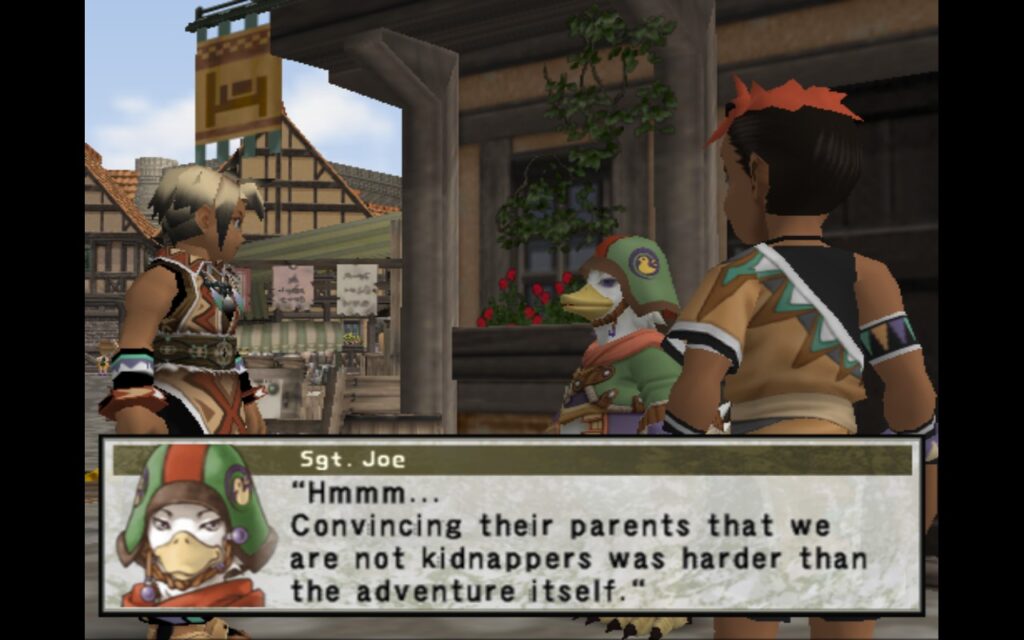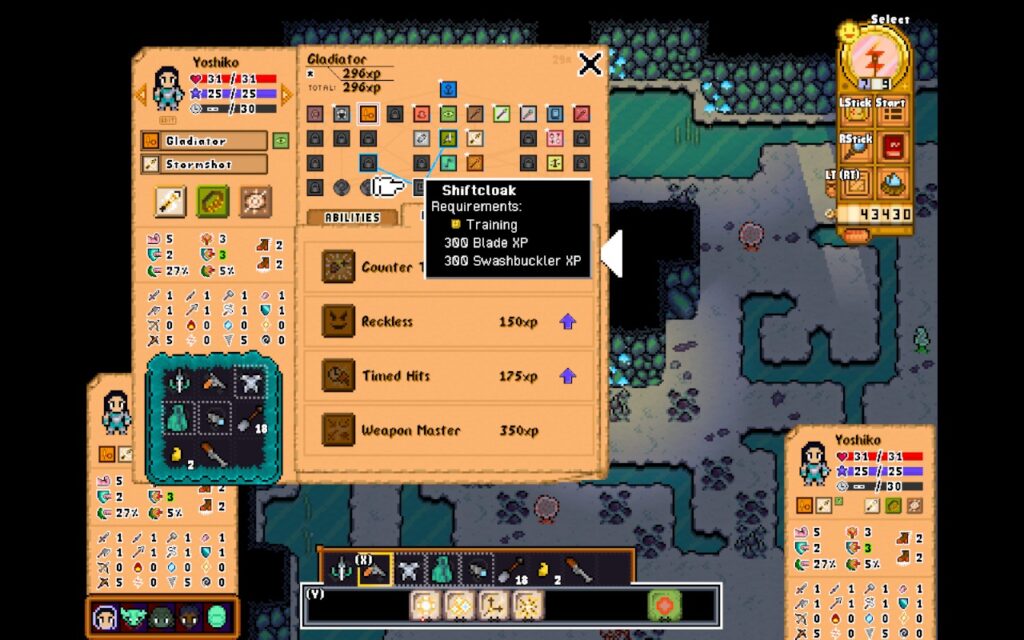Suikoden III Journal – Chapters 2
Disclaimer for these chapters: This is a project I wanted to pursue in-line with playing. But it’s been a couple months, so by the time I got to it (now), I’ve long since finished replaying Suikoden 3.
I’m not sure I’ll continue these. We’ll see!
Hugo Ch. 2
There’s really not that much to this chapter. Having discovered the Karaya village burned to the ground, Hugo and Sgt. Joe move on to the Duck village. There they encounter Lilly, an impulsive and sometimes delusional princess-analogue from Tinto. After some negotiation they decide to travel together to the Great Hollow via an old tunnel. So there’s only really one area to navigate here. On reaching the Great Hollow, Hugo discovers its entrance under attack by the Zexen Knights – who shortly retreat, not wanting to risk fighting inside the Hollow itself.
The optional battle in the tunnel is worth mentioning – it’s one of many times you can choose to fight in Suikoden III, and it’s probably the hardest one that isn’t a “sink or swim in the first round” affair like later ones.
Yuber is probably the most visible villain in III, or at least the most straightforward “definitely a villain” as Sarah makes several ambiguous appearances. While it’s unclear what exactly Yuber is, he’s consistently menacing and makes for a good recurring villain.
Chris Ch. 2
In Chris’ chapter, she moves on to Brass Castle, planning to assault the Great Hollow. She can make a brief detour to Lake Castle, but otherwise moves on to one of the game’s Strategy battles – in which characters have the same stats/abilities from regular combat, but form into 4-character units and are AI-driven instead with only broad control.
Generally I think Suikoden 3’s strategy mechanics are one of the more interesting in the series. Unfortunately there are only a couple of strategy battles that are not fully plot-driven – and they can be mostly made trivial by keeping up with equipment/weapons.
After the strategy battle, Chris learns some more detail of the reasons behind Zexen’s war with the Grasslands. She plans to confront the council, but falls ill due to overwork. After a brief rest, she goes on an impromptu holiday to Iksay, Percival’s rustic hometown, for a harvest festival.

Read the rest of this entry »


